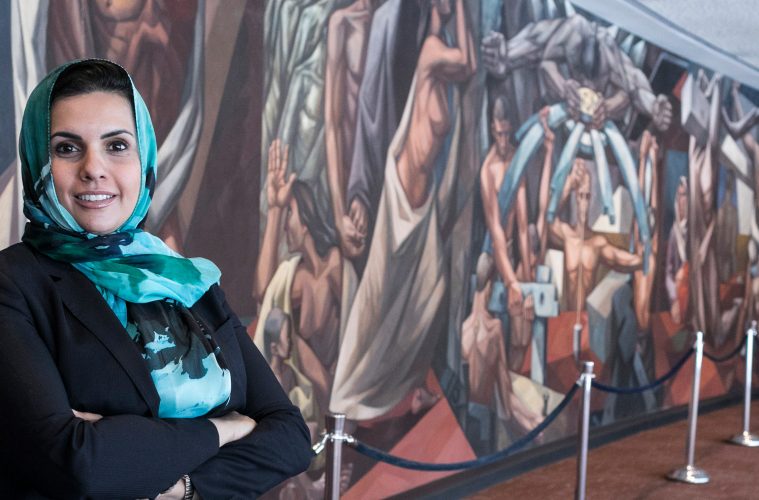The news of the death of her beloved colleague reached her via phone, “Salwa was found dead in her house in the outskirts of Benghazi. She was stabbed and shot in the head.” Zahra’ Langhi was both shattered and enraged when she learnt about the assassination of her friend Salwa Bugaighis with whom she co-founded the Libyan Women’s Platform for Peace (LWPP). This incident is not a single case in Libya: A myriad of political actors regularly operate with highly repressive means against critical voices within the marginalized peace movement.
Zahra’ Langhi and Salwa Bugaighis committed themselves to the inclusion of women within the post-Gaddafi peace movement with one of their central aims of raising awareness for gender-based violence amongst a broader public. They constantly contradicted the dominant political actors in the Libyan conflict that have reached ever more aggressive methods since the Arab protests started in 2011. Bugaighis had to pay for this commitment with her life. Langhi is continuing on her path from her Cairene exile.
Critical Voices
On June 25, 2014, the day of her assassination, Bugaighis tried to mobilize the public for the presidential elections. Through this she publicly expressed criticism towards the regime on social media platforms – which by some political opponents was perceived as an act of provocation. The fact that her political opinion has eventually claimed her life elucidates the highly sensitive and dangerous situation of people in polarized Libya, who seek for third positions between the former Gaddafi-supporters and militias. Incidents like Bugaighis’ assassination strengthen the repression and wreck hope in the establishment of freedom of speech and expression.
Women are hit particularly hard by the dynamics of marginalisation — far beyond Libya. Peace within the framework of international armed conflicts is still mainly negotiated by men, while female perspectives are mostly systematically excluded. They are rather portrayed as a vulnerable group and have their agency revoked instead of being integrated in the process of peacebuilding as central actors and crucial stakeholders.
International versus Local
The United Nations Security Council took action towards gender equality, when enacting Resolution 1325 in the year 2000. A number of further resolutions followed in subsequent years. Therein they explicitly demand that women shall be involved in peace building efforts and participate in the reform processes of state institutions on all political levels. Ever since, women can rely on a significant legal basis on an international level when they are effected by and involved in peacebuilding processes. However, these resolutions are only slowly implemented in international peace work and go largely unnoticed in local contexts.
The fact that her political opinion has eventually claimed her life elucidates the highly sensitive and dangerous situation of people in polarized Libya, who seek for third positions between the former Gaddafi-supporters and militias.
The case of Libya is a clear example for how there is no universally applicable model for successful peacework. In the broader context, North Africa is characterized by political systems with, in some contexts, weak statehood and a multitude of concurring political actors: Old, tribal structures with traditional mechanisms and continuous rivalries play a substantial role in conflict transformation. Additionally the strong presence of different armed groups has a significant influence on the political processes. Many of these parastate actors refuse to subject to the nation state of Libya and consequently also to the norms of international relations. Hence, it is also crucial to address local levels within peacework and inquire for — politically as well as culturally — differentiated approaches to conflict transformation that seek to bridge the messy contradictions that necessarily become visible in such efforts.
Bridge Building
Together with her fellow activists at LWWP, Langhi refers to both levels: On the one hand she promotes the effort of the UN Security Council with reference to international law. On the other hand she seeks local potential in order to change the system and the political structures and transform armed conflicts towards a broader political representation, towards a Libyan situation of mutual trust amongst the myriad of societal actors.
Langhi is eager to meet this challenge of implementing both levels in the Libyan peace building process. Her work shows that peacework can be a tough endeavor, which often entails severe personal risks and demands the willingness not to be daunted by frustration and allegedly unbridgeable opposition. Bugaighis and Langhi have committed themselves to this course through remarkable effort and personal sacrifice.

